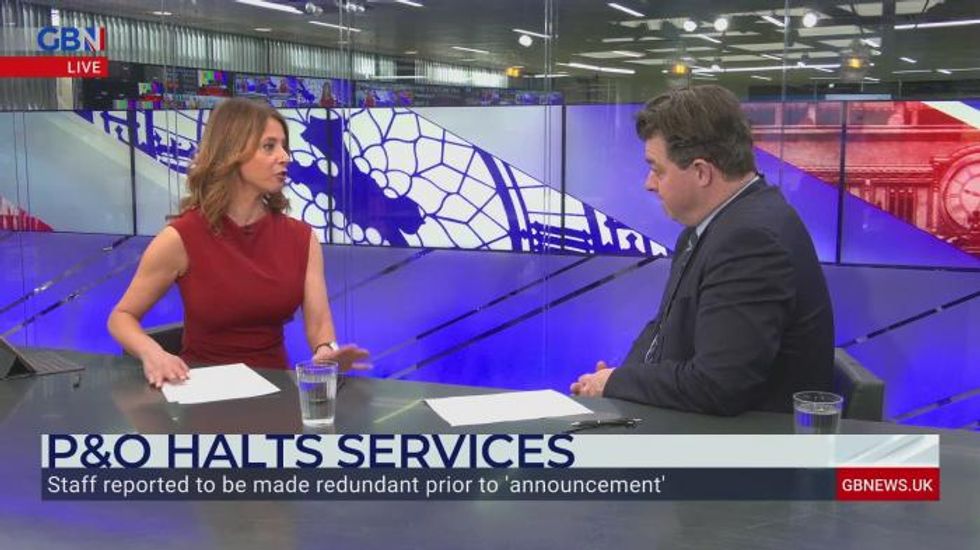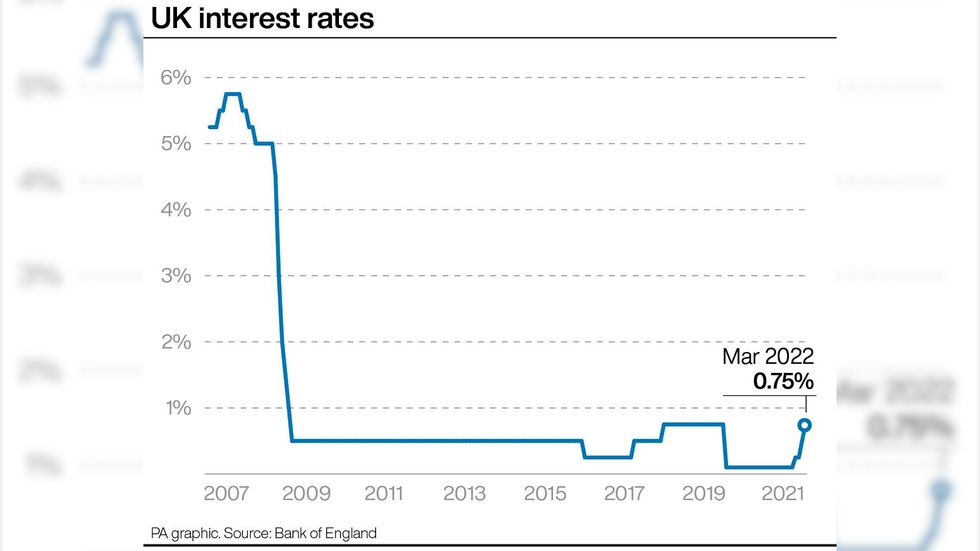Bank of England hikes interest rates to 0.75% as inflation soars
The Bank of England has raised interest rates to 0.75 percent from 0.5 percent
Don't Miss
Most Read
The Bank of England has raised interest rates again as it warned the Ukraine conflict could see under-pressure households hit with double-digit inflation later this year.
Members of the Bank’s Monetary Policy Committee (MPC) voted eight to one to increase rates from 0.5% to 0.75%, marking the third rise in a row.
One policymaker voted to keep rates at 0.5% amid fears over the impact of the cost-of-living squeeze on wider economic growth as households and businesses are expected to rein in spending due to soaring costs.
In minutes of the latest decision, the Bank signalled that more rate rises might be needed as it laid bare a gloomy inflation outlook, with the Consumer Prices Index now set to reach around 8% in the second quarter.
UK interest rates
Infographic PA Graphics.
It said that, if wholesale energy prices continue to soar, UK inflation could rise even further by the end of the year and potentially be “several percentage points higher” than the 7.25% peak forecast last month.
The Bank said: “The effects of Russia’s invasion of Ukraine would likely accentuate both the peak in inflation and the adverse impact on activity by intensifying the squeeze on household incomes.”
It said the blow from rocketing energy costs to household finances – and the knock-on effect on economic activity – is set to be bigger than first feared.
But it stressed that the shock to the economy from energy prices and Russia’s invasion of Ukraine is “something monetary policy was unable to prevent”.
It said this month’s rate rise is “warranted”, with growth proving stronger than expected in January despite the Omicron variant of coronavirus, and the Bank now forecasting expansion of about 0.75% in the first quarter, up from a previous expectation for gross domestic product (GDP) to remain flat.
The jobs market has also held up well and is unlikely to weaken as quickly as expected, it added.
The Bank said most MPC members believed “monetary policy should be tightened at this meeting in order to reduce the risk that recent trends in nominal pay growth, domestic pricing, and inflation expectations strengthened and became embedded”.
But it said one member – John Cunliffe – called for rates to remain unchanged as he “placed great weight, at this point, on the very material negative impacts of higher commodity prices on real household incomes and activity”.
The rate increase comes after the US Federal Reserve raised interest rates in America on Wednesday for the first time since 2018 in an attempt to cool rampant inflation.
The Bank of England has now raised rates three times since last December, marking the first time the base rate has been increased at three meetings in a row since 2004.












